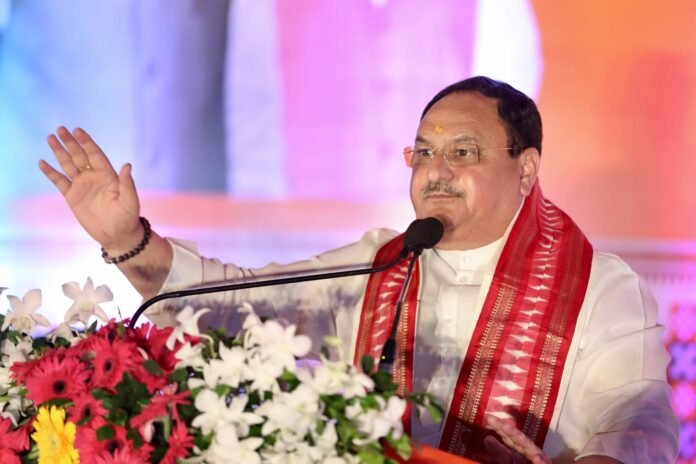JP Nadda, the president of the Bharatiya Janata Party (BJP), has tendered his resignation from his Rajya Sabha seat representing Himachal Pradesh. This move has set tongues wagging and political pundits speculating about the motives behind Nadda’s decision and the potential implications for both the BJP and the political landscape at large.
Nadda, a seasoned politician with a long and illustrious career in public service, ascended to the position of BJP president in January 2020, succeeding Amit Shah. Under his leadership, the party has navigated numerous challenges and secured electoral victories in various states, cementing its position as India’s dominant political force.
Given Nadda’s prominence within the BJP and his pivotal role in shaping the party’s agenda and strategy, his decision to resign from the Rajya Sabha has raised eyebrows and sparked conjecture about the underlying reasons. Some observers view it as a strategic maneuver aimed at consolidating power and focusing on party affairs, while others speculate about potential rifts within the BJP leadership or Nadda’s aspirations for higher office.
One possible explanation for Nadda’s resignation is his desire to devote more time and attention to his duties as BJP president. Leading a political party as large and influential as the BJP is a demanding task that requires constant engagement with party workers, grassroots organizations, and electoral strategies. By relinquishing his Rajya Sabha seat, Nadda may be seeking to streamline his responsibilities and concentrate fully on steering the BJP towards its objectives, particularly as the party prepares for crucial state elections and the 2024 general elections.
Another interpretation of Nadda’s resignation is that it signals a broader realignment within the BJP leadership and a shifting of power dynamics within the party. With the BJP’s electoral triumphs in recent years, there has been speculation about potential successors to Prime Minister Narendra Modi and the emergence of new leaders who could shape the party’s future trajectory. Nadda’s decision to step down from the Rajya Sabha could be seen as a strategic move to position himself more prominently within the party hierarchy and bolster his credentials as a potential contender for higher office.
Moreover, Nadda’s resignation may have implications for the political landscape in Himachal Pradesh, his home state. Himachal Pradesh holds symbolic significance for Nadda, as it is where he began his political career and cultivated his grassroots support base. By vacating his Rajya Sabha seat, Nadda may be signaling his intent to play a more active role in state politics and focus on strengthening the BJP’s presence in Himachal Pradesh ahead of the upcoming assembly elections.
However, Nadda’s resignation also raises questions about the BJP’s strategy and the potential challenges it may face in filling the vacant Rajya Sabha seat. With Nadda’s departure, the BJP will need to nominate a new candidate to represent Himachal Pradesh in the upper house of parliament. This presents an opportunity for the party to groom new leaders and reward loyal party workers, but it also poses logistical challenges and risks upsetting the delicate balance of power within the state unit.
Furthermore, Nadda’s resignation comes at a time of heightened political activity and speculation about possible realignments and alliances ahead of the 2024 general elections. With the opposition parties seeking to capitalize on public discontent and mounting economic challenges, the BJP faces pressure to consolidate its support base and present a united front. Nadda’s decision to step down from the Rajya Sabha could be interpreted as a preemptive move to shore up the BJP’s internal cohesion and project a sense of stability and resolve to its supporters and detractors alike.
In a nutshell, JP Nadda’s resignation from his Rajya Sabha seat has sent shockwaves through the political establishment and fueled speculation about his motives and the implications for the BJP and the wider political landscape. Whether it is a strategic maneuver to consolidate power, a reflection of shifting dynamics within the BJP leadership, or a calculated move to bolster the party’s prospects in Himachal Pradesh, one thing is clear: Nadda’s decision has set the stage for a new chapter in Indian politics, with far-reaching consequences that are yet to unfold.

